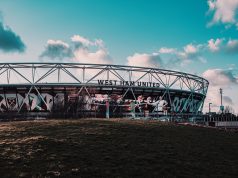Earlier this week West Ham United revealed their accounts for the year leading to 31 May 2019, and they did not make pleasant reading, showing a £27.26m loss.
The club then announced that relegation to the Championship would bring about “serious financial consequences” as well as saying “retention of our [Premier League] status in 2019-20 season is an absolute necessity for the future wellbeing of the club.”
It is hardly a message that will fill fans with confidence given the Hammers’ position in the Premier League table, above the relegation zone on goal difference alone. Although, the accounts do reveal that there has been an overt ambition to progress the Hammers up the league table.
The owners’ ambition is primarily apparent via the 28 per cent rise in West Ham’s wage bill, and the dramatic increase has been brought about by signings such as Lukasz Fabianski, Issa Diop and Sebastian Haller.
While it is slightly offset by an 8.75 percent increase in turnover, there is still a substantial increase in spending, confirmed by David Sullivan’s notes, which state: “The board made a decision at the beginning of 2018 to embark on an investment programme that would involve bringing in a world-class manager, investing in better players and making significant investment in the club’s infrastructure.”
While David Gold and Sullivan have stayed true to their word of investing in better players, without a clear recruitment strategy, it has not affected their Premier League position.
Record signing Haller is a prime example; while at Eintracht Frankfurt the striker scored 20 goals and provided 12 assists in the Bundesliga and Europa League, but for West Ham he currently has a meagre six goals and one assist.
 The Frenchman has been rendered predominantly ineffective as he does not have the same setup surrounding him as he did in Germany. With Luka Jovic and Ante Rebic alongside the 25-year-old, he had plenty of support, however, he has often cut an isolated figure at the London Stadium.
The Frenchman has been rendered predominantly ineffective as he does not have the same setup surrounding him as he did in Germany. With Luka Jovic and Ante Rebic alongside the 25-year-old, he had plenty of support, however, he has often cut an isolated figure at the London Stadium.
With regard to spending on players, the Hammers’ owners’ intentions are good. But merely buying players who have performed well at other clubs without regard for how they will fit in at West Ham, such as Haller, has not worked.
Ultimately it has left the club with a flawed ambition, yet to affect their league position, though some early David Moyes signings, such as Tomas Soucek, provide hope that could be about to change.








